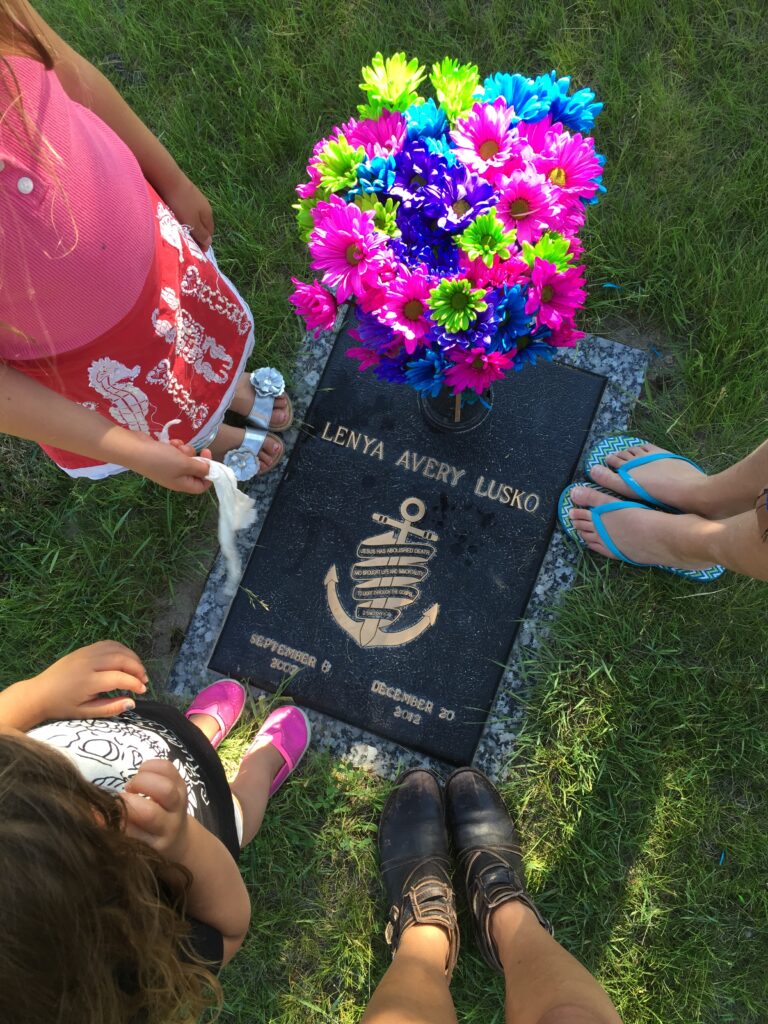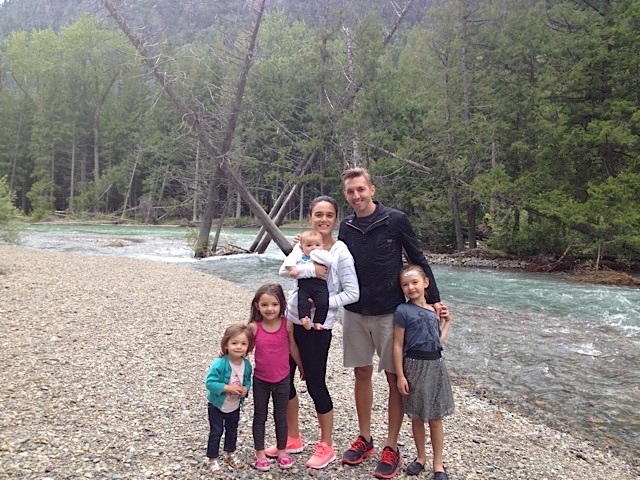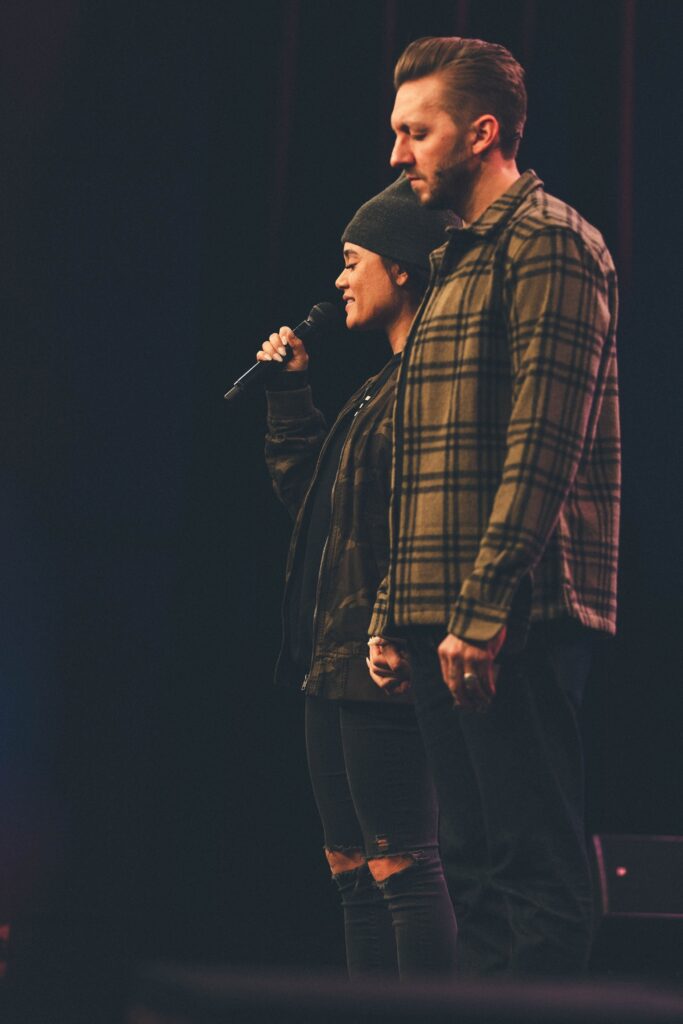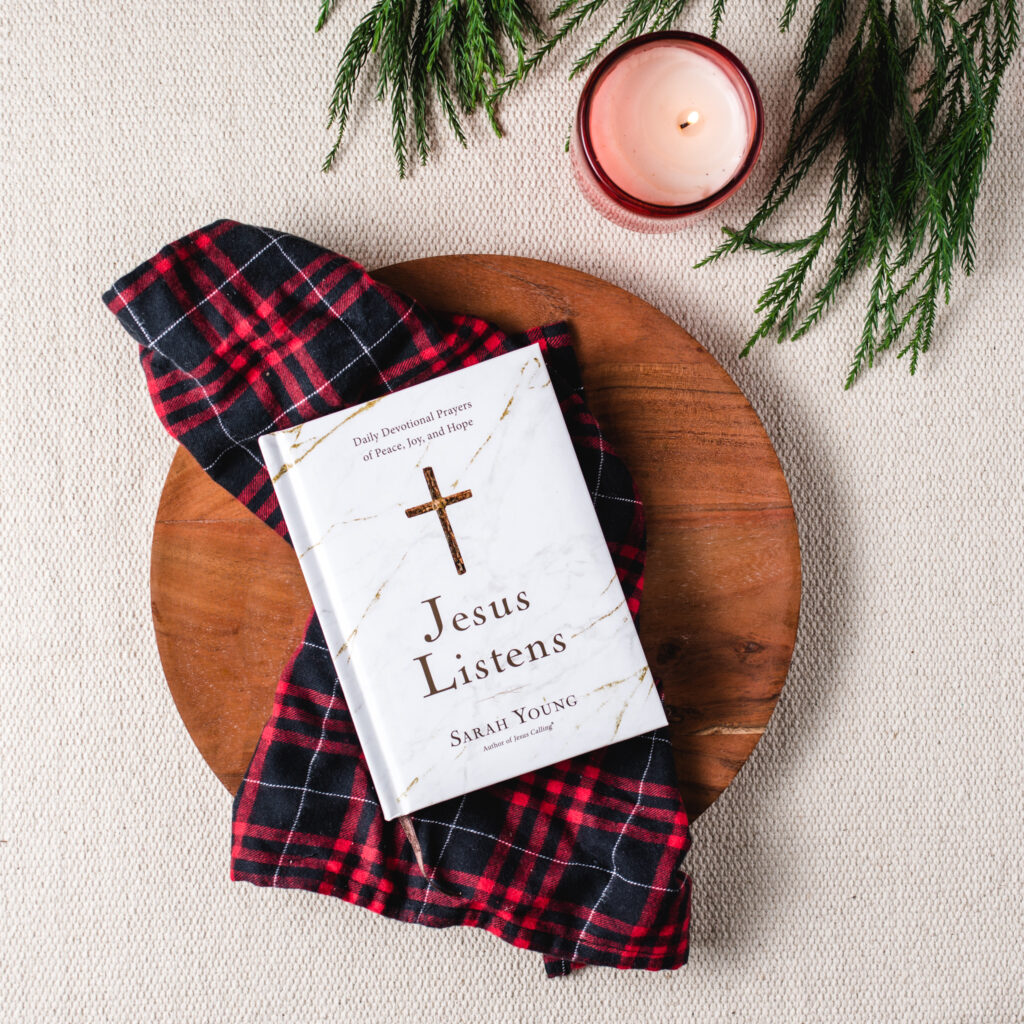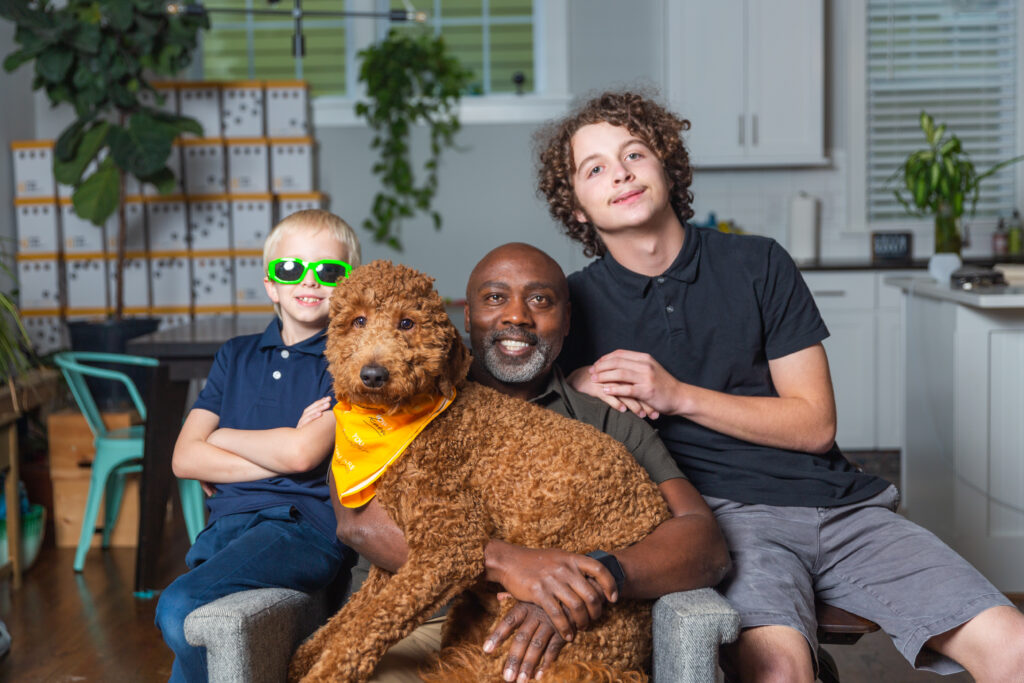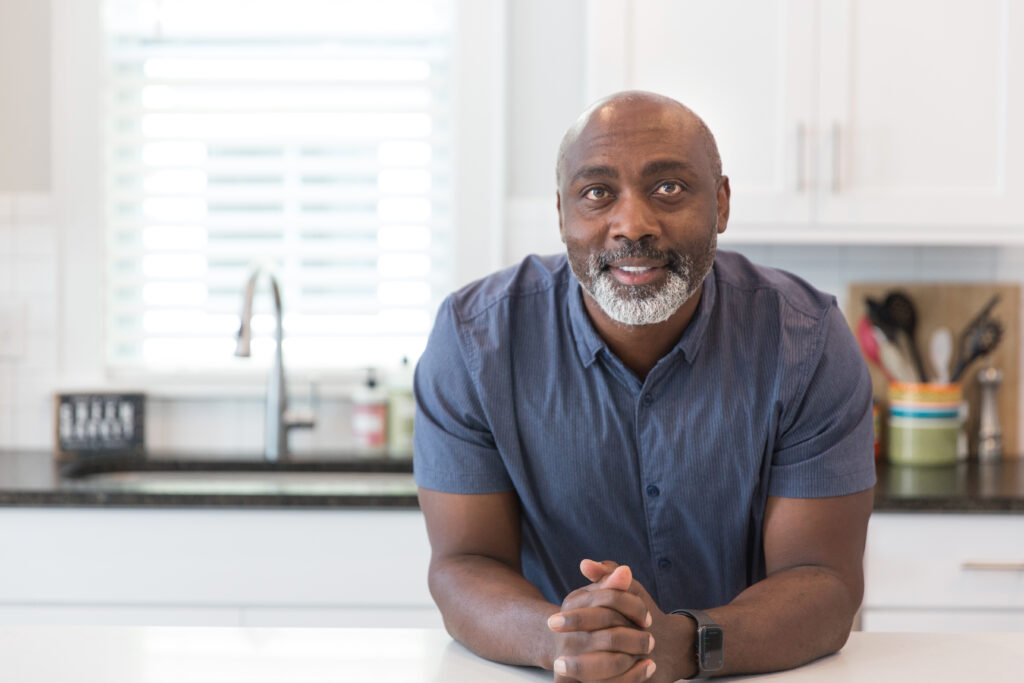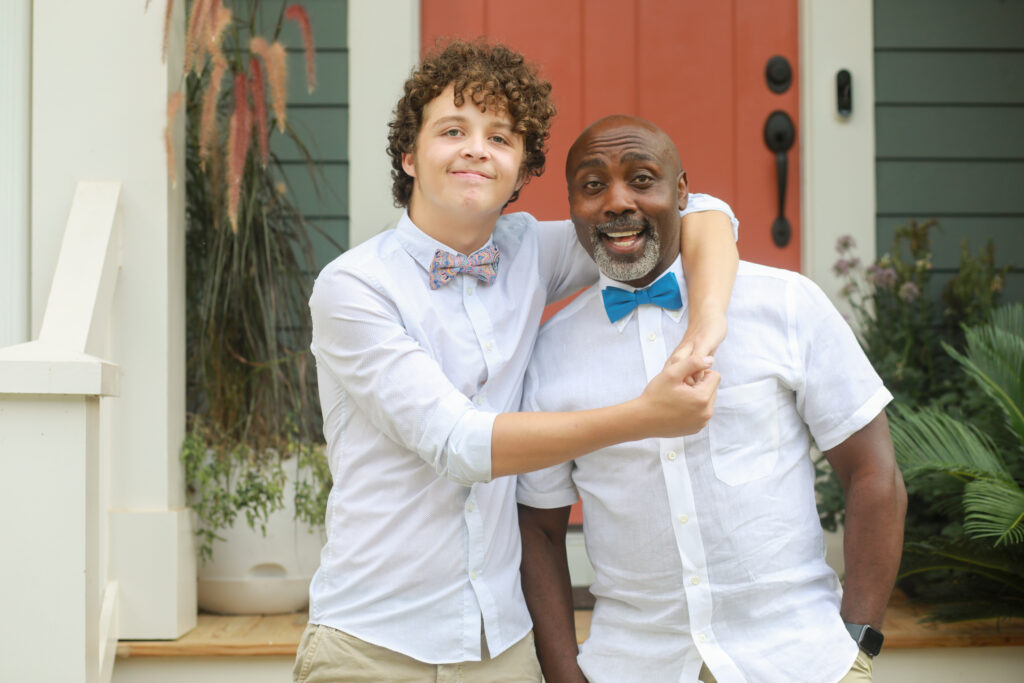How Can I Know God Hears Me When I’m Hurting? Levi Lusko & Peter Mutabazi
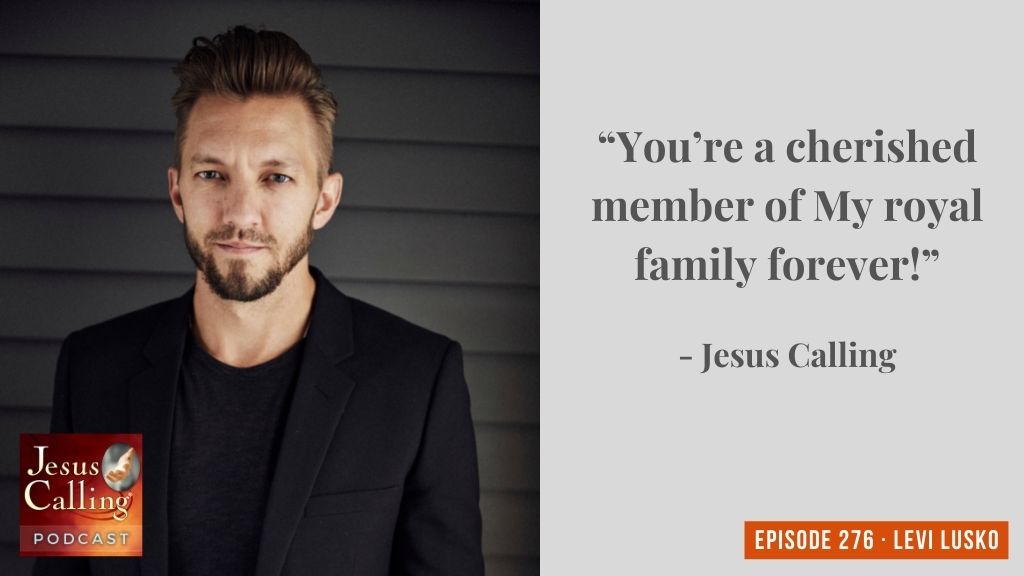
Levi Lusko: I always try to remind people, like, you don’t have to always be talking. Prayer can be just being silent, “Be still and know that I’m God.” That’s prayer too. There’s still a lot communicated in the silence. And so I don’t think you have to fill every second and fill all the air. It’s listening. It’s speaking. It’s just being together. I think that God wants you to be liberated in your prayer life and not feel like you’re a prisoner in it.
How Can I Know God Hears Me When I’m Hurting? Levi Lusko & Peter Mutabazi – Episode #276
Narrator: Welcome to the Jesus Calling Podcast. As children, many of us were taught to pray and that God will help us. But as we grow into adulthood our simple prayers can turn into desperate pleas as our lives become more complex and difficult. What happens when the prayers we pray don’t seem to be heard, or the circumstances of our lives become so traumatic we begin to doubt if God is even listening?
Our guests this week had their own ups and downs in their relationship to prayer and to God. Pastor Levi Lusko faced the tragic loss of his five-year-old daughter that shook his whole world. Foster dad Peter Mutabazi grew up in mind-numbing poverty, made worse by the abuse of his earthly father—robbing him of the hope of possibly ever knowing the love of a true Father. These men share their experiences and what gave them hope to survive the most devastating experiences of their lives.
First up, we’ll talk with Levi Lusko, the pastor of Fresh Life Church, who opens up about the tragic loss of his daughter, Lenya. Levi shares how he processed his own grief through honest conversations with God, and how he was moved to help Lenya’s siblings through their grief by creating scripture stories that could help other children going through loss so that they could understand the heart of God.
Levi Lusko: When Lenya went to heaven, we were at a loss as parents not only how to go through what we were facing ourselves, but how to help our kids process it. And of course, we involved professionals and our spiritual community, and all the rest. But how do we day by day help them navigate? Like, “Okay, we’re going to your little sister’s funeral today. We’re going to go to the graveyard today. We’ve got to go pick out a casket today.” And then next year there is Mother’s Day and Father’s Day and all these landmines that are going to be so difficult to navigate.
What we did was we would try and process spiritual truth from the Bible into ways that our kids could understand.
“When Lenya went to heaven, we were at a loss as parents not only how to go through what we were facing ourselves, but how to help our kids process it.” – Levi Lusko
Every kid has to go through hard things—everybody does. You know, we’re all just grown-up kids at the end of the day, still dealing with hard things. And for us, that hardship meant our daughter, Lenya, going home to heaven at the age of five, after an asthma attack five days before Christmas, which was unexpectedly brutal and painful and traumatic. But then there’s also the daily stuff. Obviously, the year that this world has just seen, that’s hard. Dad losing a job is hard. Getting bullied at school is hard. Making friends at summer camp can be hard. I remember sixth grade, the lunch period with no one to sit with.
I dedicated the book Roar Like a Lion to my daughter Lenya because it would not exist without her. Here’s how we’re walking a five-year-old through processing grief or pain or difficulty at a level they can understand it because, look, every one of these kids who are going to read it, they’re going to face Grandma going to heaven, or the loss of a pet, or little things along the way. And so this is just, how do we take scripture and put it in a way that’s going to make sense and help people to have courage? So that’s why the book was dedicated to Lenya because it was the truth that God was giving us, that was sustaining us in those difficult days, that we’ve now tried to do what Jesus told the disciples to do and to put all the leftover fragments into baskets, you know, after the feeding of the 5,000.
I see these six-to-ten-year olds going to read it by themselves for ninety days, which is far longer than what it takes to build a habit, putting God’s Word and prayers, and scripture into their hearts, and then going to school and facing this world with that lens of faith. But then also, I really want to give families a tool for devotions because I know how crazy family devotions can be and how hard as a dad or mom it can be to try and spiritually lead your home.
We’ve had thousands upon thousands upon thousands of people tell us, “When my next-door neighbor experienced grief because their child was killed in a car accident,” or whatever it was, “we were able to buy them your book and they were able to read a book from someone who knows what it’s like.” But now I’m excited because it’s not just mom and dad they’re going to be able to give the book to, it’s the little brother or sister who’s still remaining because survivor’s guilt is a real thing.
When we became pregnant with our son Lennox, we wanted his initials to honor his sister. So her initials were LAL. So we just already had LAL, and we just needed to flesh it out. And we ended up with Lennox Alexander Lusko to honor Lenya Avery Lusko.
But by way of man’s understanding, Lennox wouldn’t be here if [Lenya] hadn’t gone to heaven, because we had our four girls, and we felt like that was all the kids that we could handle on our plate size, and we had finished having children. Lenya had this raspy voice and she was just a rascal, the naughtiest of all of our kids by far. And then, you know, she dramatically goes to heaven, and God had His plan for this little boy to come into the world.
And it’s just so funny because he has her exact feet—his feet and her feet, they’re just so stubby and short and wide. They look exactly like hers, and he talks just like her. And he’s just naughty and crazy and fun and sweet like her, too. So it’s just pretty special, it’s a gift of God to us that we hear her voice still in the home, that raspy voice.
When I go back to The Lord’s Prayer and see what Jesus took prayer and made it, and when I remember how exhilarated I feel when one of my daughters gives me a hug or comes and sits next to me on the couch and puts her head on my shoulder, that’s prayer. Prayer is me sitting next to Dad and putting my head on His shoulder and just unburdening myself to Him.
“Prayer is me sitting next to Dad and putting my head on His shoulder and just unburdening myself to Him.” – Levi Lusko
When my oldest daughter tells me about a crush that she has on a boy in high school and I hyperventilate on the inside, but play cool and try and be the unshockable dad, you know, when Lennox catches a fish and looks back at me in the boat and says, “Look at the fish I caught,” that’s what my Father wants for me. So when I come to Him and say, “Dad, I’ve got this situation, I’m frustrated, I’m alone, I’m hurting. Father, I’m frustrated. I’m confused and anxious. And here’s what’s on my heart. I want You to take the wheel.” That’s freedom and that’s liberation.
Last week I was fishing. I saw a bald eagle feeding its babies food from the river. It took a salmon out, but then she brought the salmon over to that little baby bald eagle that couldn’t go to the salmon, but the mom is lovingly giving that salmon to its babies in a form that they can digest. I think that’s what Jesus Calling is to me. It’s that loving feeding of nourishment that is in a format that’s digestible to a system that maybe couldn’t handle a full-blown fish from the river.
My prayer journey has been one where I’ve discovered I’m better at praying while I’m in motion. I think it was Henry David Thoreau who said, “When my legs are moving, my mind begins to work,” or something like that. I butchered the quote. But the essence of it is when he was walking, he had great creative ideas. And I found that’s how it is for me with prayer.
There’s a walking path by my house, and if I need a few minutes to recalibrate my heart, I just go walk. And then also writing out prayers. I keep a daily journal and I find that when I really have something in my heart, to write it out to God, and that written form seems to help.
Many people are worried about failure, but maybe we should all be more worried about success. And I think the bigger you get, the easier it is to lose your soul, to lose the fire for the original vision, to lose that sense of passion, that sense of why. And the moment you lose your why, you always lose your way. So my prayers right now are that both personally and professionally, as a church, as a staff, we would rediscover and rekindle the original soul and passion for what God called us to do.
Okay, this is a passage from Jesus Listens dated April 22nd:
Dear God,
Help me to be strong and courageous—trusting that You will be with me no matter what happens. I’ve learned that I can choose to be strong and courageous even when I’m feeling very weak. However, the weaker I feel, the more effort it takes for me to make this choice. It all depends on where I look. If I focus on myself and my problems, my courage melts away. But if, through eyes of faith, I see You on the path ahead—beckoning me on, one step at a time—I am strengthened. The choice to be bold rests in my confidence that You are with me and for me.
Even when everything seems to be going wrong, I can fight discouragement through my trust in You. I know that You are a God of surprises—not limited by the way things are or by the paltry possibilities I can see. With You all things are possible because You are infinitely creative and powerful! The longer I wait for my prayers to be answered, the closer I am to a breakthrough. Meanwhile, I’ve found that waiting for You—aware of Your loving Presence—is a blessed way to live. Your Word assures me that You are good to those who wait for You.
In Your breathtaking Name, Jesus,
Amen
There is power in the midst of weakness, which is the tension at the center of our faith. You look at the death of Jesus Christ, which would be to His followers the worst day of their lives. And God chooses out of that to bring the best thing that’s ever happened. So if He can do that with the death of His Son, what can He do with my pain and how can I feel empowered in my pain?
Now, all of a sudden, I feel empowered in my pain and there’s a purpose in it. But then I also love that it acknowledges that this might take a while. It’s not instant. I have to wait sometimes. And in that waiting is where God really is going to develop the muscles of strength inside of you that hopefully can help you to handle the kind of blessing that He ultimately wants to give you.
“I feel empowered in my pain and there’s a purpose in it. But then I also love that it acknowledges that this might take a while. It’s not instant. I have to wait sometimes. And in that waiting is where God really is going to develop the muscles of strength inside of you that hopefully can help you to handle the kind of blessing that He ultimately wants to give you.” – Levi Lusko
Narrator: To learn more about Levi Lusko, please visit www.levilusko.com, and be sure to check out his children’s devotional, Roar Like A Lion, wherever books are sold.
Stay tuned to Peter Mutabazi’s story after a brief message.
A Meaningful Holiday Gift: Jesus Listens by Sarah Young
Many of us want to develop a deeper prayer life. In this new 365-day prayer devotional Jesus Listens, Sarah Young offers daily prayers based on Scripture that will help you experience how intentional prayer can connect you to God and change your heart. Learn more about Jesus Listens and download a free sample at jesuscalling.com/jesuslistens.
Narrator: Peter Mutzabazi’s life purpose is to help children in need. Working for child sponsorship organizations Compassion International and World Vision, he eventually became a foster dad in 2017 and has worked with sixteen kids since then—adopting two of those children into a forever home.
Peter’s motivation to help children was in response to his very harsh existence as a child in Uganda filled with hardship and abuse. After running away from home at the age of ten, Peter took to a life on the streets for the next five years. It wasn’t until a kind stranger asked him what his name was did he feel a glimmer of hope that he actually might matter in this world.
Peter: My name is Peter Mutabazi, I’m originally from Uganda, and I live here in Charlotte, North Carolina. We’ve been here for three years, and we have four kids. I’m a foster dad as well as an adoptive dad. That’s what I love to do, and that’s what I love to tell others on how we can reach out and help kids who are the most vulnerable.
I come from Uganda in a small little village called Kabali, on the border of Uganda, Rwanda, and Congo. I grew up poor, in every way you could think about. It’s something really difficult to explain to an American, you know, but think about that. You grow up, and you’ve never been told to hope. You were never told, “Hey, there’s a future for you.” Think about it this way: if a mom cannot feed you for a day, how can she tell you there’s a future for you?
At a very early age, I had to go fetch water, walk two hours and go look for firewood. So life was just miserable in the sense of lack of everything that would give hope to a child. Then at the age of four, I realized that not only were we poor, but my dad was abusive. So on one side, I had poverty against me. But on the other side, I had one person who should be my protector as my worst enemy.
Abuse wasn’t just coming towards me, but it was going towards all my siblings, including my mom. So even though one parent was there to protect us, most of the time, we could not protect her because she faced the same abuse from my dad. And so that that was what life was. That was just the worst you could think of. So if you told me to dream, today was bad enough that I didn’t really want to think about tomorrow.
“Abuse wasn’t just coming towards me, but it was going towards all my siblings, including my mom. So even though one parent was there to protect us, most of the time, we could not protect her because she faced the same abuse from my dad. And so that that was what life was. That was just the worst you could think of. So if you told me to dream, today was bad enough that I didn’t really want to think about tomorrow.” – Peter Mutabazi
At the age of ten, I thought, Look, I’d rather run away and die somewhere else than let my dad take my own life. So I ran away, not because I was looking for something, but because I wanted a better future.
I’d never been twenty miles away. I ran away and ended up in Kampala. And, of course, you end up in a city you’ve never been in, 500 miles away. You don’t know anyone. You don’t speak the language, you know. So my only option was to be a street kid. So from there, I became a street boy from the age of ten, eleven to fifteen, sixteen.
What we did was to survive, and surviving was every hour, every minute. Think about if the rest of the world looked at you as a stray and more as garbage. You know, you’re called every name you could think about. And you believe it because that’s who you were, you know, and we survived by stealing, mostly food, and surviving. So our survival was literally on an hourly basis. So you didn’t really have time to think through, If I make you through this hour, how do I make it the next hour?
You know, some kids, they got in trouble. They would eat something really horrible and they would lose their lives, or they would sleep under the car and the car would move without them knowing. And life was just more of, Any minute, I might die. So for me, there wasn’t really anything to hope for.
As street kids, we would steal food, or we would really help people. So I helped a family and this family stopped and wanted to know what my name was. For four years, I lived on the streets. No one had ever at one point asked me what my name was. But this stranger said, “Hey, what’s your name?”
I was like, “Wait, you want to know my name?”
Before I could steal food, he gave me something to eat. And so he left, you know, and two weeks later, I saw him again. Three weeks, I saw him, so I noticed that he came often, but every time he came, he would give me something to eat. And so he did that for a year and a half.
So after a year and a half, he said, “Hey, Peter, if you had an opportunity to go to school, would you go to school?”
And I said, “Wait, me? Go to school?”
You know, think about this: when you’re a street kid like there’s really nothing to think about. There’s nothing to hope for. There’s nothing to, in some way, work towards. You just live, as I said, hour by hour. So for him to mention school, it was like saying, “Hey, would you like to go to the moon?” It’s a world that I don’t really dream about. That’s how I felt being told to go to school. It was a world out there that I did not understand.
But somehow, because he insisted, I think I trusted him. I’m going to go not because I wanted to be anybody, but for the first time someone had to see me as a human being and he saw me at my lowest. But at the same time, he also saw potential that I did not see myself.
And so by saying, “Yes,” I really began to dream and not to dream to be somebody, I think he promised me I would get food and shelter there. So for me, going to school was about food. So in the process of staying and waiting for the next meal, I realized just how good I was at school as well. And so that’s really how I began to hope and how I began to truly see myself as someone who will get somewhere—not because I had it, but because someone saw that in me and he believed and had faith in me. You mean, like, I have potential? You mean I can be somebody, you know? And that’s really what changed my life forever.
“I realized just how good I was at school. That’s really how I began to hope and how I began to truly see myself as someone who will get somewhere—not because I had it, but because someone saw that in me, and he believed and had faith in me.” – Peter Mutabazi
So, after going to school for six months, he said, “You know what? Now I want you to come to my family.” You know, I think he was afraid to bring a street kid into his home. So it was like, “He stayed at school for six months. I think it’s time to bring him to be part of our family.”
I had never seen a family that sits and eats together. I had never seen a dad that talks straight to their kids and laughs. You know, I had never seen a dad and a mom who inspire their kids to dream and be whoever they wanted to be.
So for this man, you know, to somehow begin using words like, “Hey, Peter, you’re special.” And I remember he did it. One time, he wanted me to sit in the car, but I didn’t feel I was good enough to sit in front. So I wanted to sit in the back. And he said, “Peter, no, you matter. And you’re special to us. That’s why you should sit in front.” And to this day, I remember those words. You know, he would tell me, “Peter, you belong to us. Peter, you are chosen. Peter, you’re not alone. Peter, you’re brave for what you went through.” And my best thing he would say, “Peter, you’re a gift to our family, because you’ve changed our lives,” and that meant everything for me.
The family that took me in, they use Jesus Calling every Thursday, every week, to do their devotion. So we always had devotion Thursdays. He used words of affirmation to really help me, in some way, remove the scales on my own heart to feel that I mattered. And so because they made so much impact, I thought, If one day I’d become a dad, I’m going to use these words.
And that’s what really began to help me begin to dream in some way because I saw something that I wanted to be. I saw a dad that I wanted to be. I saw brothers and sisters that loved me as who I am, that I really wanted to be a brother to them. And that helped me to begin dreaming, but also helped me to be who I wanted to be because that’s what they saw in me.
Later, I found out that he was the head of Compassion International Uganda. So in some way, I was a sponsored kid through him. Here’s another thing: he introduced me to faith because he never told me what to do. He just did what he did. And I followed. He never told me about Christ. He never taught me to read the Bible. He never said that but how he lived his life is what intrigued me to want to know.
Then the other part is I really struggled with was anger towards my dad. I hated my dad in every way, shape, and form. My adopted dad helped me with the anger by really showing me what grace and mercy that God had given us, how to see that. And I think that really helped me once I let go of the anger towards my dad, and I really began to heal and see that there was a future for me.
So the kindness of one took me to places I never, never dreamt in a million years that I would be. I’ve traveled to 100 countries. I’ve done amazing things that no one in my village would ever do. So for me, once I got an opportunity to come to the United States, I think I really wanted to be a voice for the kids and I wanted to advocate for kids. I wanted to be that voice.
I started working for Compassion International for eleven years, being an advocate and really helping people sponsor. I know what it means to grow up poor and have no resources to dream about. And then I worked for World Vision later. So I’ve been with them for about three years.
I traveled from Uganda to L.A. so you can imagine the contrast, the culture shock. The one thing that I really struggled with, I went to the restaurant and the amount of food I saw being thrown away really, really [made me] question my faith, you know, because to see how much was thrown away and knowing that kids in my village are going to die today because they didn’t have a meal. I began to ask God, “God, do You love us the same way? How can some people have so much to throw away every day, but others have so little that they will lose their lives?” You know, and that was a challenge for me. That was really a challenge.
“I traveled from Uganda to L.A. I went to a restaurant and the amount of food I saw being thrown away, and it [made me] question my faith. To see how much was thrown away and knowing that kids in my village are going to die today because they didn’t have a meal, I began to ask God, ‘Do You love us the same way? How can some people have so much to throw away every day, but others have so little that they will lose their lives?’” – Peter Mutabazi
Then the second thing I struggled with was seeing how many houses in the community—that someone can have a four-bedroom house, but there’s a kid in the neighborhood that is looking for a place to be, but yet we can’t help them. And I think for me, I really wanted to do Luke 12:48, “To whom much is given, much is required.” I had been given so much that I wanted to do something. So I signed up to be a foster dad, but as a single man, I didn’t know if they would allow me. So I went in as a mentor. They said, “Well, you can be a foster dad.” And that’s how I became a foster dad. So since then, I’ve had sixteen kids, adopted one, and I have four right now.
It has been really amazing, you know, that God could allow me to go through what I went through. But for me on this end, to see it as a way to help me understand kids in the foster care, you know, the trauma they go through is the same I went through. The struggle they have, the neglect by their own parents is what I felt. The running away, not having a place to belong. That’s how I felt. The thought of nobody seeing you, no one really seeing the potential you have. To use my past experience to be there for them has been really the most impactful thing. Not things I can give them, but things that I can draw from my own life and be able to share with them has truly been so meaningful that you look back and say, “Wow, God, I had no idea, but You allowed me to go through all of that. But at the same time, I can use the past to change Your little ones here in the United States.”
“To use my past experience to be there for [my foster children] has been really the most impactful thing. Not things I can give them, but things that I can draw from my own life and be able to share with them has truly been so meaningful that you look back and say, ‘Wow, God, I had no idea, but You allowed me to go through all of that. But at the same time, I can use the past to change Your little ones here in the United States.’” – Peter Mutabazi
Every child ought to know they’re a gift, they are loved, they are brave, they are known. So we partnered with Starlight Foundation. They have 800 hospitals that are taking these plushies for kids. You know, as I was in the hospital for twelve weeks, we can say you are not alone. We’re saying, “You are seen, you’re special, you matter.” I mean, for kids in foster care to know that they can have that teddy bear, they can have the bandana, that you can always hear those words that sometimes we don’t get to say enough every day. But if they can read them, if we can put them next to their bed—if their mom who didn’t use those words of affirmation—[encourage her to] remember, “Hey, I need to tell my kid that he’s special and he’s still chosen. He matters to us.” Then I will have done my part in really making a difference for others. That’s how we came up with Now I Am Known. We stand to be an advocate for those who are not seen and those who are not heard.
“We stand to be an advocate for those who are not seen and those who are not heard.” – Peter Mutabazi
I think sometimes as parents we want to show the good side of us, the best thing we get to do, that we never really share the difficulties we went through as kids. And I think for me that has worked well by saying, “I know because I was one of you. I know how you feel about your parents because that’s how I felt about my parents. I know when you feel you don’t belong because I never belonged for most of my life as a kid. I know how bravely you’ve walked.” I mean, some of our kids have been to three, five, twelve homes. And for me, it’s brave that you had to go through all those homes and you still smile sometimes, you know? And so they have someone that—I have not hidden or shied away from sharing my story, but rather they get to really see the example of, Well, if he can do what he does, maybe there’s hope for me. It’s amazing the small things we can do, how they impact life for someone.
Narrator: To learn more about Peter’s ministry with Now I Am Known, please visit www.nowiamknown.com.
If you’d like to hear more stories about how to trust in God when we’re hurting, please listen to our interview with Joni Eareckson Tada.
Narrator: Next time on the Jesus Calling Podcast, we speak with entertainer Kristin Chenoweth, who shares about her new album, Happiness Is…Christmas!, and how she’s bringing light to the holiday season.
Kristin Chenoweth: I hope when people listen to it, they just are eating good food and laughing and remembering and having moments of gratefulness and enjoying the music. We have to figure out a way to keep the focus on God and look for the joy.
